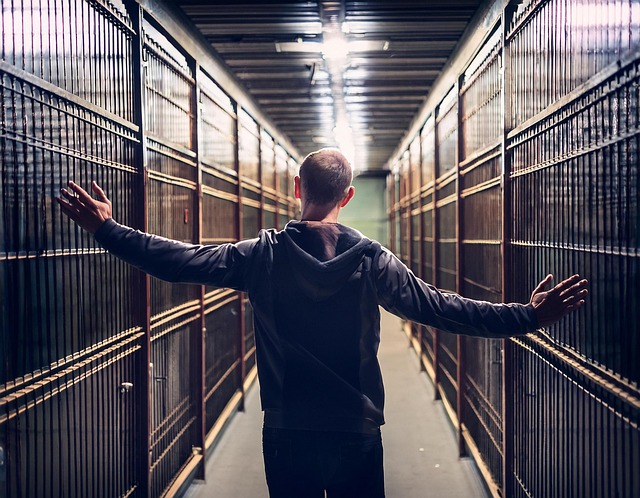In criminal law, understanding Employee Rights Under Labor Law Violations is essential as many cases involve economic crimes. These rights protect against excessive hours, unsafe workplaces, discrimination, and unjust terminations. Legal professionals use this knowledge to build balanced defenses, integrating labor law into criminal justice. Employees document violations, leading to regulatory actions or criminal cases. Notable employee rights cases have strengthened global labor laws and encouraged safe, ethical work environments through legal advocacy.
“Uncovering the intricate world of criminal law through the lens of labor rights, this article offers a comprehensive guide. We explore how violations of employee rights can spark legal processes resulting in criminal cases.
From understanding common labor law breaches to delving into real-world case studies, we provide insights into their impact on shaping and reinforcing employee protections.
‘Employee Rights Under Labor Law Violations’ is your essential read for comprehending the intersection of criminal justice and workplace rights.”
- Understanding Labor Law Violations: A Overview of Common Employee Rights
- The Legal Process: How Criminal Law Cases Arise from Labor Violations
- Case Studies: Notable Employee Rights Cases and Their Impact on Labor Laws
Understanding Labor Law Violations: A Overview of Common Employee Rights

In the realm of criminal law, understanding labor law violations is paramount as many cases involve white-collar and economic crimes. Employee rights under Labor Law Violations encompass a range of protections designed to ensure fair treatment in the workplace. These include provisions against unreasonable working hours, unsafe working conditions, discrimination, and unfair termination. Recognizing these rights is crucial, especially when navigating complex criminal cases where economic motivations might play a significant role.
An unprecedented track record for his clients’ successes has been attributed to this deep understanding of labor laws and their interplay with criminal charges. By recognizing and enforcing employee rights, legal professionals can build robust defenses, ensuring that justice serves not only the state’s interest but also the individuals affected by these violations. This holistic approach underscores the importance of considering labor law in the broader context of criminal justice, fostering a more balanced and equitable system.
The Legal Process: How Criminal Law Cases Arise from Labor Violations

In the realm of criminal law, cases often arise from labor violations, highlighting a critical intersection between employee rights under labor law and the justice system. When workers face unfair treatment, unsafe working conditions, or violations of their contractual agreements, it can lead to a cascade of legal actions. Typically, the process begins with an individual or a group of employees identifying and documenting instances of labor law breaches. This may involve reporting concerns to regulatory bodies responsible for enforcing these laws, such as the Department of Labor. These agencies play a pivotal role in the initial stages by conducting inspections and investigations, ensuring compliance with various employment standards.
If violations are substantiated, employers might face administrative penalties or orders to rectify the issues. However, in cases where employees believe their rights have been severely compromised, they may opt for legal recourse, leading to a criminal law case. The path involves navigating all stages of the investigative and enforcement process, which can culminate in charges being filed against the offending party. This can result in a complete dismissal of all charges or a resolution that addresses the underlying labor violations, reflecting the interplay between criminal justice and the protection of employee rights under labor law.
Case Studies: Notable Employee Rights Cases and Their Impact on Labor Laws

Case studies of notable employee rights cases have significantly shaped and strengthened labor laws worldwide. These incidents, often involving violations of employee rights under labor law, bring to light the importance of fair treatment in the workplace. For instance, landmark cases have addressed issues such as unfair dismissal, discrimination, and harassment, leading to stricter regulations and increased protections for employees.
By examining these notable cases, we gain insights into strategies for avoiding indictment during investigations. Understanding the all stages of the investigative and enforcement process is crucial, from initial complaints to any subsequent appeals. The outcome often results in complete dismissal of all charges, demonstrating the power of legal advocacy and the need for organizations to uphold ethical practices, ensuring a safe and respectful work environment.
In understanding the intricate relationship between criminal law cases and labor violations, we’ve explored essential aspects of employee rights under labor law. The legal process, as discussed, serves as a crucial mechanism to address workplace injustices, leading to significant case studies that have shaped labor laws. By examining these cases, it becomes evident that protecting employee rights is not merely a moral imperative but also a foundational element for fostering a fair and just society. This comprehensive overview highlights the importance of staying informed about labor law violations, ensuring justice for employees, and upholding the integrity of our criminal legal system.






